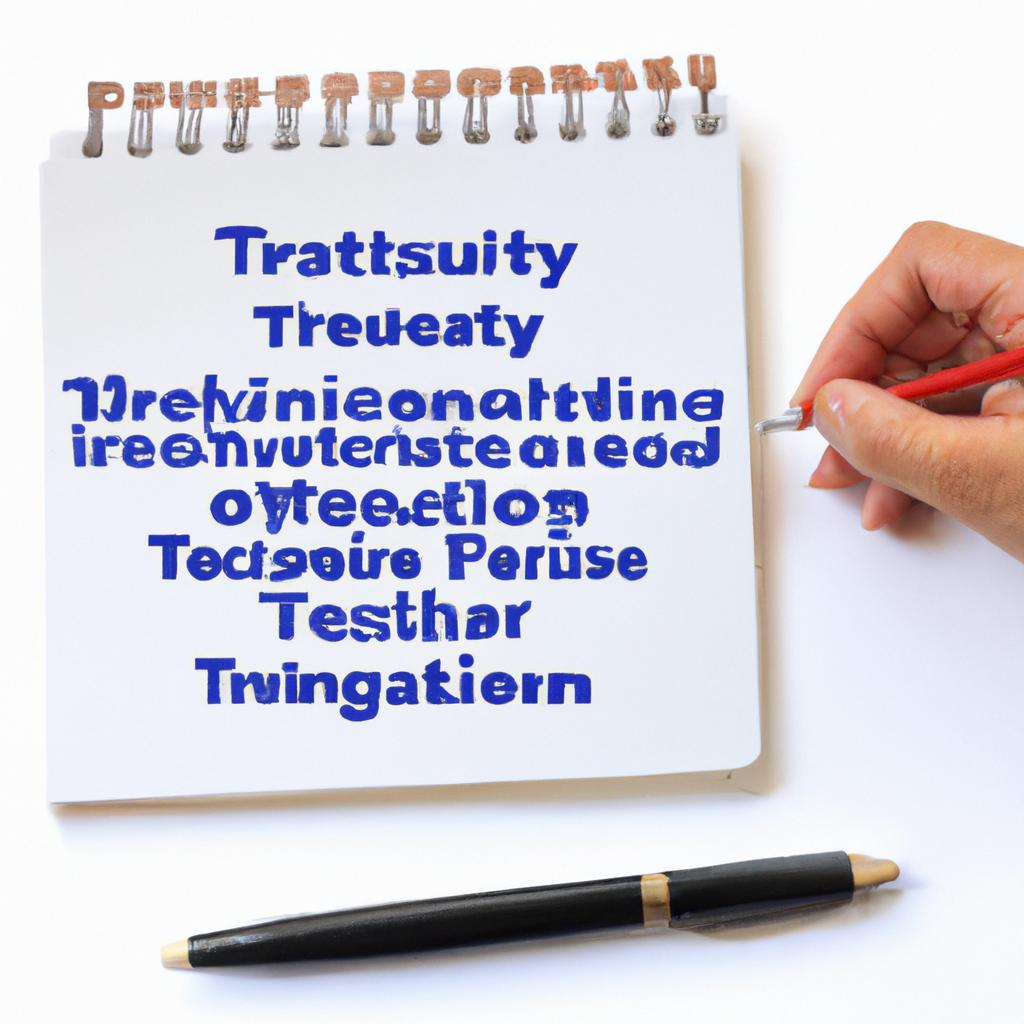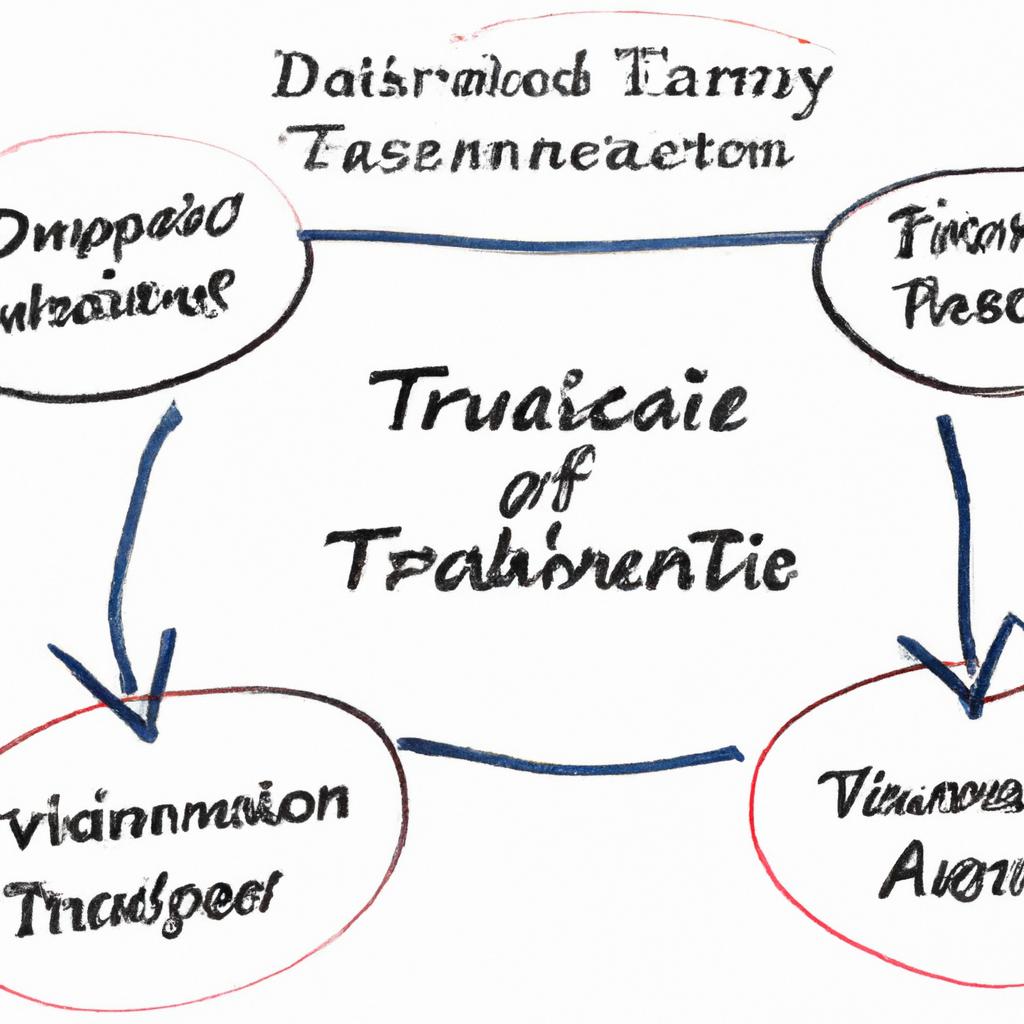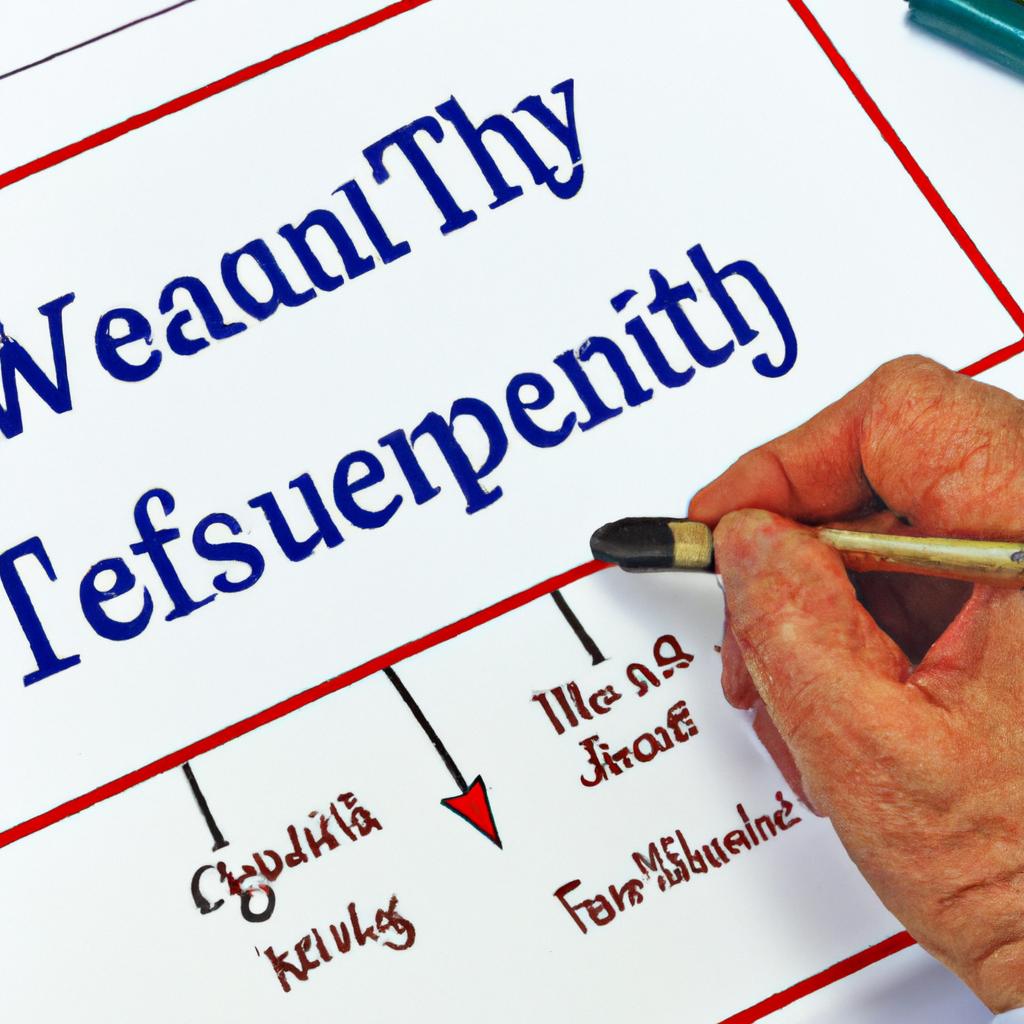In the complex and ever-evolving world of trusts estates, the importance of meticulous planning and comprehensive legal guidance cannot be overstated. At Morgan Legal Group in New York City, our team of experienced attorneys is dedicated to providing expert advice and personalized solutions for a wide range of estate planning needs. From navigating the intricacies of probate to drafting tailored Wills and trusts, we are committed to safeguarding your assets and ensuring your wishes are carried out with precision and integrity. Trust us to protect your legacy.
Understanding the Role of Trusts in Estate Planning
Trusts play a crucial role in estate planning, offering a variety of benefits and flexibility for individuals seeking to safeguard their assets for future generations. A trust is a legal arrangement that allows a trustee to hold assets on behalf of a beneficiary, ensuring that those assets are managed and distributed according to the grantor’s wishes. By establishing a trust, individuals can protect their assets from probate, minimize estate taxes, and maintain control over how their wealth is passed on.
There are several types of trusts available for estate planning purposes, each serving a specific function based on the grantor’s goals and needs. Some common types of trusts include revocable trusts, irrevocable trusts, charitable trusts, and special needs trusts. Each type of trust offers unique advantages and considerations, so it is essential to work with a knowledgeable estate planning attorney to determine the most appropriate trust structure for your specific circumstances. With the guidance of experienced legal professionals, individuals can create a comprehensive estate plan that protects their assets and ensures their legacy is preserved for future generations.

Exploring the Benefits of Establishing Trusts for Asset Protection
When it comes to protecting your assets for future generations, setting up trusts can be a powerful tool. Trusts can offer a wide range of benefits, including:
- Asset Protection: Trusts can help shield your assets from creditors and lawsuits, providing a secure way to safeguard your wealth for your beneficiaries.
- Privacy: Unlike wills, which become public record after probate, trusts offer a level of privacy as they are not subject to public scrutiny.
- Control: By establishing trusts, you can specify how and when your assets are distributed, ensuring your wishes are carried out according to your instructions.
Moreover, trusts can also help minimize estate taxes, avoid probate delays, and provide for loved ones who may not be able to manage their finances responsibly. As experienced estate planning attorneys, we can help you navigate the complexities of trusts and create a customized plan that meets your specific needs and goals.

Navigating the Complexities of Trust Administration and Distribution
When it comes to , attention to detail is key. Properly managing a trust estate requires careful consideration of various factors, including legal requirements, tax implications, and the wishes of the trust’s creator. At Morgan Legal Group, our team of experienced estate planning attorneys is well-versed in the intricacies of trust administration and distribution, ensuring that your assets are protected and distributed in accordance with your wishes.
Our trusted team can assist you with a wide range of trust administration and distribution needs, including but not limited to:
- Interpreting trust documents
- Identifying and valuing trust assets
- Communicating with beneficiaries
- Preparing and filing required tax documents
- Resolving disputes among beneficiaries

Ensuring the Succession of Wealth through Thoughtful Trust Planning
When it comes to safeguarding your wealth and ensuring a smooth transition for future generations, thoughtful trust planning is paramount. Trusts offer a powerful tool to protect your assets, minimize taxes, and dictate how your estate will be distributed. By establishing a well-crafted trust, you can provide for your loved ones, protect vulnerable beneficiaries, and maintain control over your assets even after you’re gone.
At Morgan Legal Group, we understand the complexities of estate planning and the importance of creating a comprehensive trust that aligns with your unique goals and values. Our team of experienced attorneys specializes in designing tailored trust solutions to ensure the seamless succession of wealth for your family. From revocable living trusts to irrevocable trusts, our experts will guide you through the process, offering strategic advice and personalized solutions to help you achieve your long-term financial objectives.
Q&A
Q: What is a trust estate?
A: A trust estate is a legal arrangement where a trustee holds and manages assets on behalf of a beneficiary.
Q: How is a trust estate different from a will?
A: A trust estate takes effect immediately while a will goes into effect after the person’s death.
Q: Who can create a trust estate?
A: Anyone can create a trust estate, as long as they have assets to place in it and are of sound mind.
Q: What are the benefits of creating a trust estate?
A: Some benefits include avoiding probate, protecting assets from creditors, and ensuring assets are managed according to your wishes.
Q: Can a trust estate be contested?
A: Yes, a trust estate can be contested in court if there are concerns about the validity of the trust or the actions of the trustee.
Q: How do I choose a trustee for my trust estate?
A: It is important to choose someone who is trustworthy, financially responsible, and willing to follow your instructions for managing the trust assets.
Q: What happens to a trust estate if the trustee dies?
A: It is important to designate successor trustees in your trust documents to ensure that someone else can take over managing the assets if the original trustee is unable to do so.
Closing Remarks
In conclusion, trusts and estates have long been a cornerstone of estate planning, providing individuals with the means to protect and distribute their assets according to their wishes. By understanding the intricacies of trusts and estates, individuals can navigate the complexities of estate planning with confidence and peace of mind. Whether you are establishing a trust for your loved ones or navigating the probate process, having a solid understanding of trusts and estates is essential. Remember, building a strong foundation of trust and ensuring efficient estate administration can benefit not only you, but also future generations to come. Trust in the process, and let your estate plan reflect your values and legacy.
 Trusts and estates are legal tools used for managing and distributing assets and property. They provide a way to protect and control your assets during your lifetime and ensure they are distributed according to your wishes after your death. In this article, we will delve into the world of trusts and estates, what they are, how they work, and why they are important.
Trusts and estates are legal tools used for managing and distributing assets and property. They provide a way to protect and control your assets during your lifetime and ensure they are distributed according to your wishes after your death. In this article, we will delve into the world of trusts and estates, what they are, how they work, and why they are important.
What is a Trust?
A trust is a legal arrangement where a trustee holds and manages assets on behalf of a beneficiary. The trustee can be an individual or an institution, such as a bank or a law firm. The beneficiary is the person or entity who will receive the assets held in the trust. Trusts can be created for a variety of reasons, such as protecting assets, minimizing taxes, and providing for loved ones.
There are many types of trusts, but the most common ones include living trusts, testamentary trusts, revocable trusts, and irrevocable trusts. Each type of trust serves a different purpose and has its own set of rules and regulations.
Living trusts, also known as inter-vivos trusts, are created during the lifetime of the grantor (the person creating the trust). These trusts are often used for estate planning purposes and can help avoid probate, the legal process of administering a deceased person’s assets. Testamentary trusts, on the other hand, are created through a will and become effective upon the death of the grantor.
Revocable trusts, as the name suggests, can be modified or revoked by the grantor during their lifetime. These trusts are often used for asset protection and avoiding probate. Irrevocable trusts, on the other hand, cannot be changed or revoked once they are created. These trusts are commonly used for tax planning and protecting assets from creditors.
What is an Estate?
An estate is the total sum of an individual’s assets, including real estate, personal property, and financial assets, such as investments and bank accounts. When a person passes away, their estate goes through a legal process known as probate. During probate, the court validates the will (if there is one), pays off any debts and taxes, and distributes the remaining assets to the beneficiaries.
It’s worth noting that not all assets go through probate. Assets held in a living trust and assets with designated beneficiaries, such as life insurance policies and retirement accounts, bypass probate and go directly to the designated beneficiaries.
Importance of Trusts and Estates
There are several reasons why trusts and estates are essential tools for asset management and estate planning.
– Asset Protection: Placing assets in a trust can protect them from creditors and lawsuits. Irrevocable trusts, in particular, offer greater protection since the grantor legally gives up control of the assets in the trust.
– Avoiding Probate: As mentioned earlier, trusts can help bypass probate, a time-consuming and costly legal process. By avoiding probate, the assets in the trusts can also remain private, as probate records are public.
– Tax Planning: Trusts can also be used as a tax planning tool, helping to minimize estate taxes and income taxes.
– Providing for Loved Ones: Trusts can ensure that your assets are used for the benefit of your loved ones even after you’re gone. For instance, a trust can provide for minor children or adult dependents who may not be able to manage their finances on their own.
– Maintaining Control: Trusts allow for control over how and when assets are distributed to beneficiaries. This can be useful in situations where a beneficiary is not yet mature enough to handle a significant inheritance or has a history of poor financial decisions.
Practical Tips for Setting Up a Trust and Estate
Creating a trust and planning your estate can feel daunting, but with these practical tips, you can ensure the process goes smoothly.
– Seek Professional Help: Setting up trusts and estate planning requires a detailed understanding of the legal and tax implications. It’s advisable to seek the help of an attorney who specializes in trusts and estates to ensure everything is done correctly and in accordance with the law.
– Be Clear About Your Goals: Before creating a trust, make sure you are clear about your objectives and goals. What do you want to achieve with the trust? How do you want your assets to be distributed? Being specific and detail-oriented can help prevent misunderstandings and legal battles down the road.
– Choose Your Trustee Wisely: It’s essential to choose a trustee who is responsible, trustworthy, and has your best interests at heart. If you’re creating a revocable living trust, you can appoint yourself as a trustee and name a successor trustee in case you become unable to manage the trust.
– Stay Organized: Keep accurate records of all your assets and update them regularly. This will make it easier for your loved ones and the executor of your estate to locate your assets and ensure they are distributed correctly.
In Conclusion
Trusts and estates are valuable tools for managing and preserving your assets. They offer a way to protect your assets during your lifetime and ensure they are distributed according to your wishes after your death. By seeking professional help, being clear about your objectives, and staying organized, you can create a solid trust and estate plan that will provide peace of mind for you and your loved ones.


